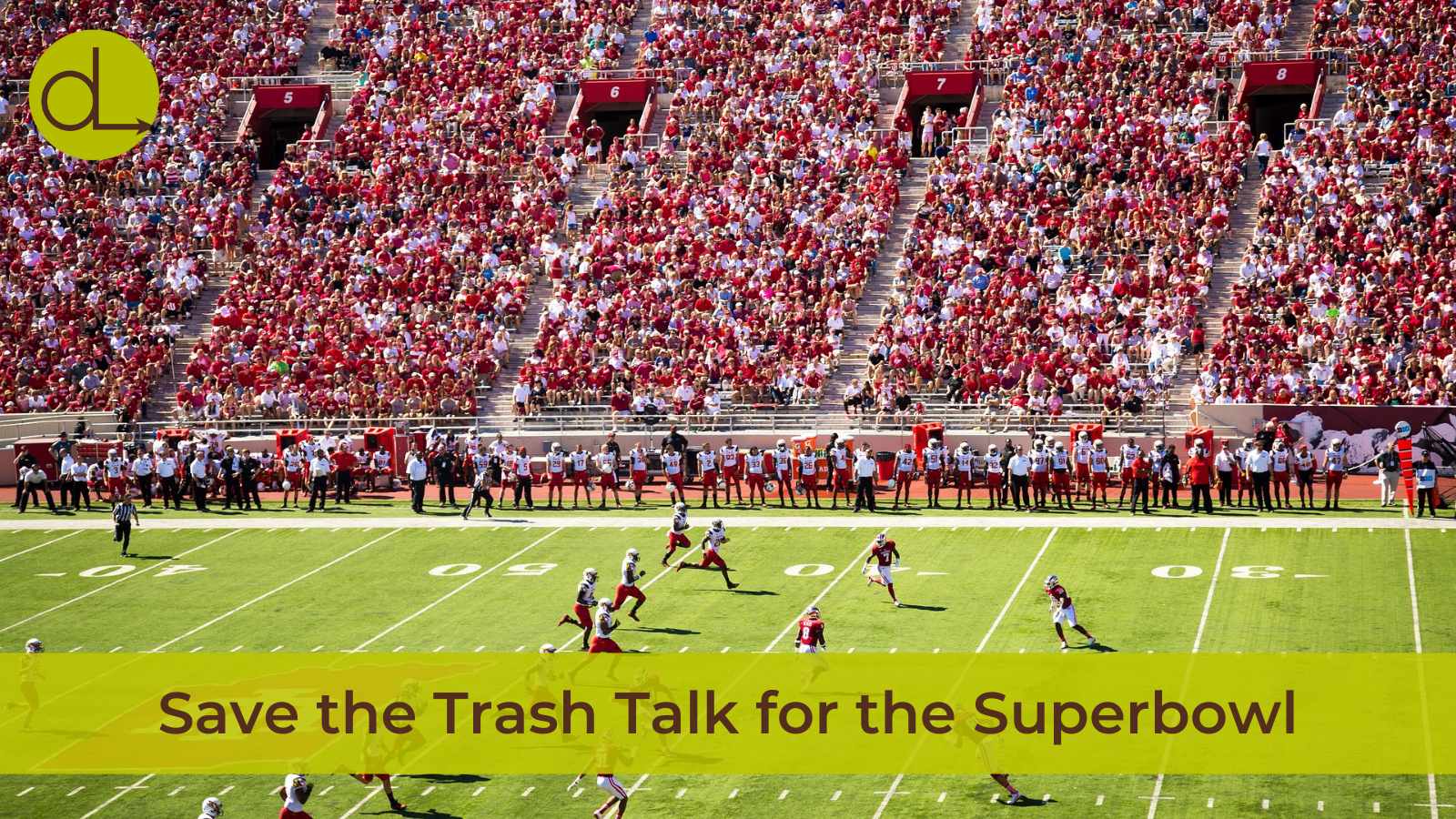Have you ever engaged in trash talk?
Don’t tell me you haven’t! I’ve seen you at football games shouting at the other team. You’re going down! You don’t even know how to throw the ball!
Sure, we all do that — it’s part of the fun.
But what isn’t fun is when we start trash-talking ourselves. You know what I’m talking about. That inner voice that says:
- “You’re not good enough.”
- “You’re going to embarrass yourself if you speak up in this meeting.”
- “If you take this on, you’re gonna fail.”
- “You don’t deserve this.”
- “What will other people think?”
- “Remember when you messed this up before? Don’t try it again.”
We all have this type of script running in our heads. I’m talking about the thoughts we’re thinking, but don’t say out loud. Some have a louder running script than others, but we all have thoughts that aren’t helpful.
Even coaches aren’t immune to trash talk
It’s not possible to eliminate your trash talk altogether. It’s normal. I suffer from it too.
One of my strongest trash-talking voices is so loud, and has been with me for so long, that I’ve even given her a name: Little Miss Perfect Pants. If she were to get her way, I would never:
- Publish a book, because “You’re not a writer!”
- Give a keynote speech, because “You’re not a professional speaker!”
- Run a marathon, because “You’re going to lose that race!”
- Start a business, because “You don’t have an MBA!”
Yes, even after five decades on this earth, these are still my first thoughts every time I try to do anything unknown or scary.
These thoughts are natural. The key is not to try to stop them, but to reframe them thoughtfully.
Let me explain.
How professional athletes deal with trash talk
The next time you’re at a football game and people start trash-talking your team, watch carefully the behavior of the athletes on the field. Chances are, they’re not running over and yelling at the opposing fans to make them stop. That wouldn’t be a good use of their energy!
In fact, they normally don’t show any external signs of anger whatsoever. They’ve trained to not let it affect them. One of the first things you learn as an elite athlete is how to tune out distractions so you can focus on what you need to do.
Some athletes even allow the negative energy from fans to motivate them to achieve greater heights. Over in Europe, Cristiano Ronaldo is famous for doing this in the soccer world. Tennis star Novak Djokovic has said openly that he loves it when the fans support the other player on the court.
Why is this? Don’t athletes feel discouraged when crowds boo and jeer at them?
It’s because peak performers have learned the art of impulse control. When they hear that trash talk, either from someone else or from themselves, they consciously choose how to respond to it with Strength, as opposed to reacting on autopilot.
In other words, they’re Thoughtfully Fit.
Putting Little Miss Perfect Pants in her place
Over time, I’ve learned to become more unreactive towards my own inner trash talk.
I can’t stop thoughts like “You could never compete in a Master Swim Meet,” no more than professional athletes can prevent fans from hurling insults at them. But I can develop the inner Strength to not follow that thought by thinking how annoyed I am with myself for thinking in that way.
Here are 3 questions that have helped me reframe my inner trash talk thoughtfully:
- Is this thought serving me or sabotaging me?
I can normally recognize Little Miss Perfect Pants pretty quickly these days (thanks to years of practice!).
2. What are my choices and what do I control?
I might not be able to win the gold medal at the Master Swim Meet, but I can ask my coach to help me practice flip turns and dive off the blocks beforehand.
3. What is a realistic expectation?
I can aim to sign up for a race that’s competitive for people of my ability. Swimming across the Atlantic might be a step too far.
Tackling your inner trash talk
Imagine your boss asks you to do a presentation at the next company meeting and, for whatever reason, your trash talk starts shouting: “NO! NO! You can’t do this. You’ll make a fool of yourself.”
If you respond immediately, based on what your trash talk is saying, there’s a good chance that the voices in your head will become a self-fulfilling prophecy.
Let me be real with you: I’ve spent 20 years studying this stuff and figuring out methods to help my clients clear the hurdles that get in the way of their own success. Very often, simply pausing to reflect before acting solves the problem! But it always has to be in that order: Pause, then Think, then Act.
What’s crazy is how many of the people I work with say: “I’ve been doing it all backwards, Darcy! I act, then I pause and think, ooh I should’ve handled that differently.”
It all starts with your core

So I’m going to give you a one-minute core workout challenge you can do immediately to start training!
- Pause: The next time you hear that inner trash talk telling yourself you can’t do something, take a short time-out.
- Think: Is this thought serving or sabotaging you? What do you control and what are your choices in this situation? What can you realistically expect of yourself?
- Act: Choose to proceed with intention based on this new awareness.


